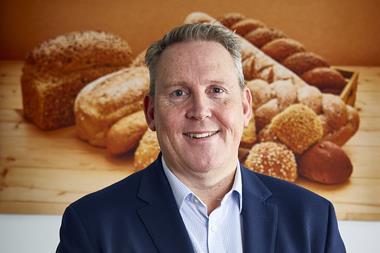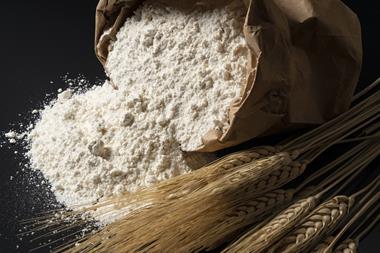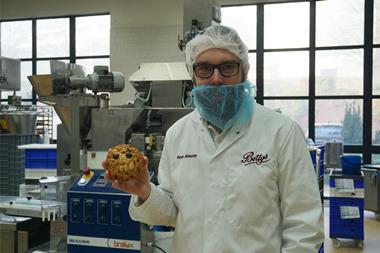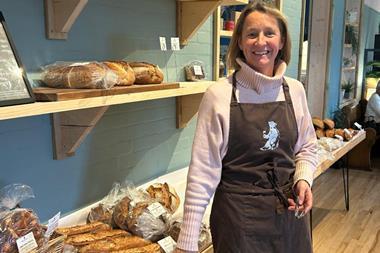Recruitment, supply chains, and innovation are front of mind for the baking industry in 2024.
While many agree there has been some improvement from the challenges of 2023, it’s not all smooth sailing this year. Here, leaders from bakery trade associations and firms outline what they think 2024 will have in store for the industry:

Andrew Pyne, chief executive, Federation of Bakers
The challenges ahead in 2024 will be similar to last year; managing tight margins and cash flows; living with higher input costs; driving forward on the sustainability agenda; and ensuring we have a generation of skilled and trained workforce in the bakery sector. These key issues apply regardless of business size and scale, and effect all to some degree. However, whilst still priced above historical prices I believe the markets for key inputs will stabilise, i.e., energy and wheat prices and futures.
Whilst the prices of bread and baked goods can vary across the sector, consumers have become accustomed to perceiving bakery as an everyday essential – a low value commodity – why else would it reportedly be one of the highest food waste household products?
To bring the consumers their daily bread, we need to ensure we have the dedicated, trained, and skilled workforce
The solution is, in part, for industry to communicate the true value of bakery – the high level of commitment from the full supply chain of UK farmers, millers and bakers to provide shoppers the enormous range of delicious and yet thoroughly affordable baked goods. But affordable shouldn’t mean ‘cheap’, and for historically too long the retail price has been at a point where consumers can afford to under value bread. I’ve previously said – the humble loaf isn’t so humble when you understand farming and food producers’ efforts to ensure it’s available and fresh seven days a week. We need to inform and educate shoppers of the true value of a loaf of bread.
To bring the consumers their daily bread, we need to ensure we have the dedicated, trained, and skilled workforce. This starts by ensuring a clear pathway exists for the next generation, so they are aware of, and excited by a future career in bakery, a strategy the Federation will be continuing to promote.

Colin Bebbington, sales director, Warburtons
Bakery occasions presents a real opportunity – while bread remains incredibly important, it’s really clear that the growth area is in new, interesting bakery products and meeting this demand is key to success. For the category to grow, space and visibility of those products in high demand must also grow therefore improving space allocated to bakery occasions products – such as pittas, crumpets, and bagels – is essential. Regardless of whether in bread or bakery occasions there is an opportunity to make the most of emerging trends such as protein and create new exciting products to delight consumers and drive demand.
Healthier products remain as important in bakery as ever, as consumers continue to look for products with additional health benefits such as seeds, grains, fibre and in particular protein which has flown up the consumer health agenda. One in four shoppers are now interested in the protein content of bakery products which is clear when you look at the incredible consumer demand for our Protein Thin Bagels – volume sales up 53% (latest 12 weeks vs last year) and now outperforming our Original Thin Bagels. We will be capitalising on the protein trend by launching a new loaf – Protein Power – in early 2024.

Jason Geary, master baker, Geary’s Bakeries
As with many industries, the increasing employment costs in bakery makes maintaining cost prices and affordability ever more difficult. In addition to higher labour costs, it’s also becoming difficult to attract people into baking as a profession, so talent is often at a premium.
In the face of rising costs, bakery businesses must look to find efficiencies in the production process to maintain affordability. By investing in efficiencies in the right places through the process, we’ve managed to keep our products affordable, without compromising quality or our artisanal integrity.
Equally important is to invest in people, to develop baking as a skill. This is a priority for Geary’s as evidenced by our new apprenticeship scheme.
To stay relevant in the bread market, businesses need to stay close to consumer needs and trends, and develop products accordingly, as well as communicating clearly to keep customers up to date with product benefits.
One of the biggest opportunities for premium bread and particularly sourdough is health. We’ve heard lots of debates over the years about the benefits of eating brown or wholemeal bread vs white, but new debates such as gut health are becoming increasingly important to the conversation. This gives real sourdough products such as Jason’s Sourdough the opportunity to educate consumers on the benefits of clean ingredients, no additives, no yeast and lower GI. Another market trend is premiumisation. Consumers are becoming increasingly food conscious, both in terms of health and taste. They are becoming increasingly willing to spend a little more for a higher quality product that delivers to their culinary preferences.
From a long-term perspective, we need a new generation of bakers to take the mantle and continue product innovation. Bakeries should be looking at ways to inspire the next generation of young bakers and consumers and offer the skills and development opportunities that will secure the long-term future of the industry and category.

Karen Dear, CEO, Craft Bakers Association
As we go into 2024, many of our members are still feeling the pain of high energy bills and the ever-rising cost of ingredients.
For those bakers who are tied into pricey contracts, it will be a while before they are able to see the benefits of the reduction in energy rates, but for others they will be able to stabilise after what has been a very difficult period.
A survey among our members revealed that 88% had found the cost of ingredients had been a challenge through 2023 with 68% citing energy costs.
But the financial pressures aren’t likely to end any time soon, with the increase in the National Living Wage from April likely to affect many of our members. Most businesses pay a fair wage, but for those already having to tighten their belts, the rise could have an impact and they may be looking for ways to cut costs.
Despite these gloomy financial prospects, our members are looking forward with optimism as 48% anticipate an increase in sales with the recession easing and more than half (56%) looking to invest in new technology or equipment.
The ongoing shift from working from home to a hybrid model – and in some cases, a full return to the office – is benefitting bakers with food and drink to go expected to be the most successful products through the year as city workers pop in for their lunchtime treats.

Mike Bagshaw, founder, I.T.S.
Unfortunately, 2024 will bring little rest from the chaos in the global supply chain. New global conflicts have only created more complications in shipping raw materials throughout the world.
With inflation, interest rates, and energy prices still in a state of flux, these escalating costs have brought uncertainty and it is tough for smaller bakeries to manage and forecast going forward. Staff shortages, particularly of skilled staff continue across bakery and this is proving to be a challenge. As the credit crunch continues, supermarkets are going full speed at strengthening their cost-effective own label options which in turn puts pressure on bakery brands and smaller artisanal bakeries to keep pace on costs.
It’s tough but it is essential for bakeries to invest in the future
It’s tough but it is essential for bakeries to invest in the future – whether that is stocking up on raw materials or supplying forecasts of orders with your suppliers. This will ensure bakeries are not caught short on ingredient deliveries.
Cost reduction and reformulation could be key to tackling escalating costs. Our advice is for bakeries to take a long hard look at their ingredients. What ingredients are proving a headache? Fruit inclusions for example or butter? How can they be used differently or replaced with more price-stable ingredients. Being on the front foot with trends and innovations is important too. Being ahead of the market is always a plus to keep brand appeal and interest in your offering particularly for smaller bakeries who may be up against the drive for cost effective supermarket own brand.
AI isn’t going away. It might sound scary, but it’s the future whether you like it or not. Have a look at your business and see ways this can help. Trust me, your competitors will be, so if you’re not, you’ll be left behind.

Daryl Newlands, head of brands and marketing, Finsbury Food Group
The market has continued to demonstrate elasticity and resilience throughout times of financial difficulty. Inflation has put pressure on consumers and branded lines in particular, at times, have felt the impact of this. However, despite the economic challenges posed by increasing commodity prices, disrupted supply chains, and soaring energy prices, the cake market saw a year-on-year growth of 7.7%, and the bread market grew by 1.7%.
Despite the challenges, branded lines play a key role in shopper baskets and work in tandem with own label products to deliver a balanced, affordable shop. Our strategy is to continue to invest in the licensing brand market and develop our range of products that are very much consumer and trend driven. With this, we will continue to work closely with our existing partners but also look to establish new partnerships where we see fresh opportunity to develop new and innovative product propositions to the market across our cake and bread capabilities.
Innovation remains a key purchase motivator for a vast majority of consumers, and these trends are continually evolving.

Tim Clarkson, cluster director UK and Ireland, Dawn Foods
Many of the challenges that our industry faced in 2023 will continue into 2024; these situations don’t change overnight. We have, however, seen some improvement in raw material pricing and availability, and while these improvements are continuing, the recent events in the Middle East and now the Red Sea region could have an impact on supply chain and, in some cases, costs. While things have got better post Covid, other challenges are now at play, so it is very much a case of ‘proceed with caution.’
Closer to home, the cost-of-living crisis is really taking its hold for many so spending habits have changed to reflect this. Consumers want the best from the money they have to spend so we are seeing a trend towards purchasing bakery items less frequently but as a special treat. As a result, those treats need to be made with quality ingredients and increasingly deliver new flavours and formats.
The bakery industry has shown over the years that it can rise to meet any of the challenges that have been thrown at it and 2024 will be no different
Labour costs and availability are still ongoing problems that are not easing as much as hoped. The huge number of positions available means people can pick and choose their jobs and there are challenges finding the right skill sets right across the bakery industry. More could be done by the bakery and food industry to make schools and colleges aware of the variety of roles and benefits of a career in the food industry in general.
In the present labour crisis, retaining the best staff in the bakery industry is essential so we are actively looking at the way we work, offering incentives to team members as well as ensuring we offer fair pay and additional rewards. It is important that our team members are appreciated so we can secure their loyalty.
While this last year has been cautious in terms of R&D in the industry after the fall out of Covid, there are going to be many more opportunities for bakery products with a natural, free from or health claim, but which also deliver the satisfaction of a ‘sweet treat’. Vegan will retain its popularity but the lines between vegan and non-vegan will become more blurred. Bakery products will be good tasting first and vegan second as the growth in flexitarian eating rather than a strict vegan diet continues to dominate.
The bakery industry has shown over the years that it can rise to meet any of the challenges that have been thrown at it and 2024 will be no different.

John Lindsay, CEO, Baker & Baker
Generally, consumers will remain hard pressed in 2024, particularly in the light of increased mortgage rates that will impact their discretionary spending capacity.
With this in mind, there will be a continued appetite for offers and deals, and a need to deliver perceived value as consumers seek ‘worthwhile’ indulgent treats – particularly for special occasions or simply as a small reward for themselves.
Fresh bakery remains an impulse category – so interest and visual appeal are always essential, and in the currently trading environment, will be even more critical in 2024.
To capitalise on this trend, Baker & Baker will continue to develop exciting and interesting new flavour combinations, particularly across the ever-popular American sweet bakery range of cookies, doughnuts, muffins, and brownies. We are also looking forward to bringing further exciting Mondelēz licensed fresh bakery products to the market both in the UK and across Continental Europe in 2024.

































No comments yet